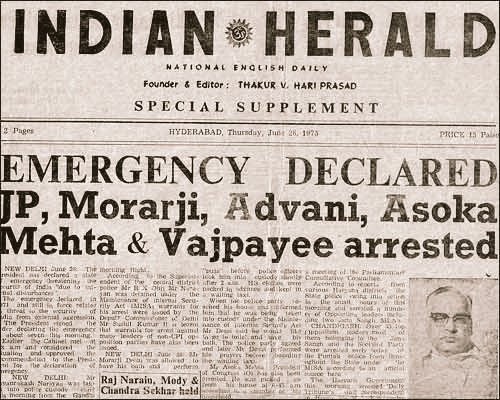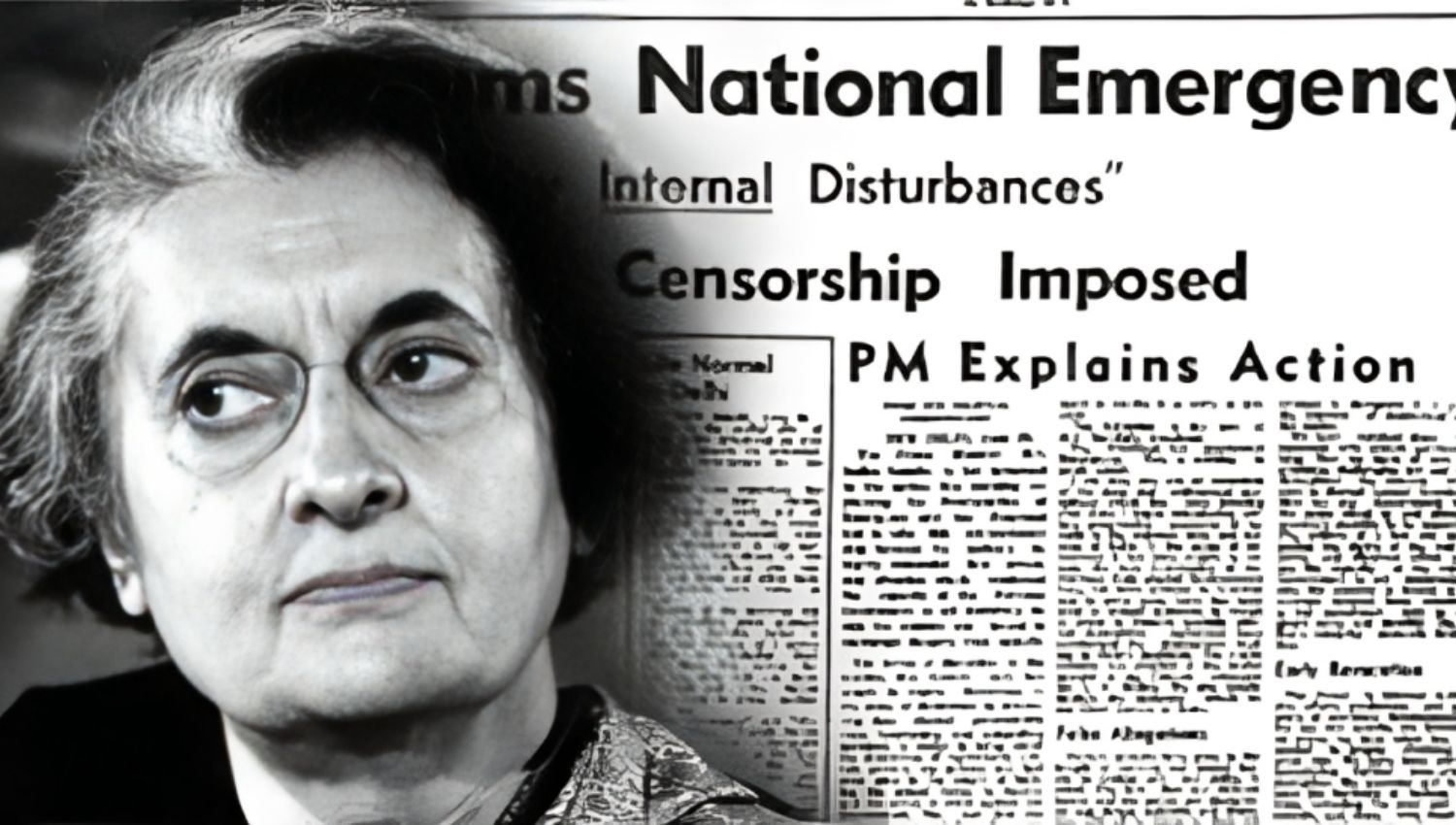Indira Gandhi, the then Prime Minister, enforced a 21-month state of emergency on June 25, 1975, with the intention of suppressing civil liberties.
According to Article 352 of the Indian Constitution, the President holds the authority to proclaim an Emergency when there exists a severe menace to the nation’s security, be it through war, external aggression, or armed rebellion.

All you need to know about Emergency 1975:
- Indira Gandhi proclaimed the initiation of Emergency through a broadcast on All India Radio late on June 25, 1975, shortly after the Supreme Court provided a conditional halt to the Allahabad High Court’s judgment, which had annulled her Lok Sabha election. The apex court directed Gandhi to abstain from engaging in parliamentary proceedings.
- Gandhi reassured the nation in her midnight address that there was no need to panic, despite the President declaring a state of Emergency, which led to the arrest of several opposition leaders.
- She made a remark about the extensive and far-reaching plot that has been developing since the implementation of certain progressive initiatives aimed at improving the lives of the general population in India.
- The Congress party, under the leadership of Indira Gandhi, emerged victorious in the 1971 Lok Sabha elections by securing 352 seats out of the total 521 in Parliament. Indira Gandhi’s popularity was soaring as she successfully led the liberation of Bangladesh in December 1971, dealing a significant blow to Pakistan.
- Nevertheless, India was experiencing a period of turmoil due to various events such as the Navnirman agitation led by students in Gujarat, Jayaprakash Narayan’s (JP) movement in Bihar, the Railway strike organized by George Fernandes in 1974, and the significant Allahabad High Court ruling on June 12, 1975, which declared Gandhi’s election to Lok Sabha from Rae Bareli as invalid.
- The Congress’ loss in the Gujarat elections to a five-party coalition and the opposition’s assembly at the Ramlila Ground in Delhi on June 26, 1975, left Gandhi in a precarious situation and was viewed as a key factor leading to the enforcement of Emergency.
- JP also urged for a countrywide campaign to oust Gandhi from her position as the prime minister, in response to numerous demands from Congress members for her removal.
- Following the declaration of Emergency, numerous activists, along with opposition leaders JP, L K Advani, Atal Bihari Vajpayee, and Morarji Desai, were promptly incarcerated.
- The 21-month timeframe was also recognized for its instances of forced mass sterilization, press censorship, suspension of constitutional rights, and consolidation of power.
- Gandhi, unexpectedly, announced the elections on January 18, 1977, using the same approach as when the Emergency was enforced. The general elections took place from March 16 to March 20, and the Emergency was revoked on March 21, 1977.

